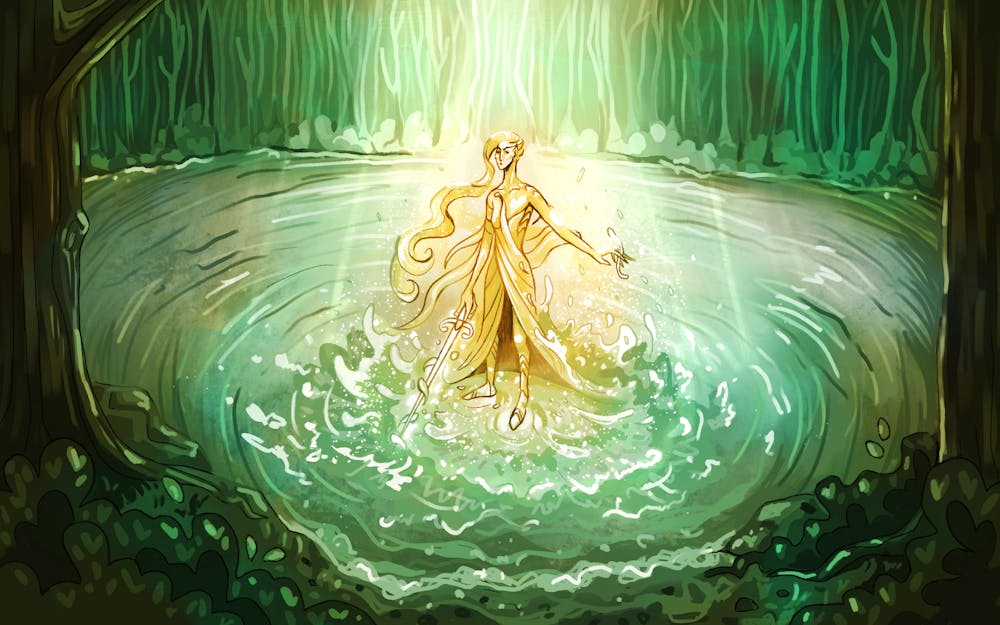Nature has always been a grounding force for me. Walking, hiking and spending time outside helps me escape the never-ending cycle of work and socialization that keeps my brain in a constant state of hyperactivity. Only in nature can I truly let everything go.
When assigned to read an excerpt from Henry David Thoreau’s “Walden” during the first week of class, I was enthralled. Often coined as one of the first American environmentalists, Thoreau wrote his magnum opus about his intention to live a life deliberately stripped of materials and sequestered in nature to reach a higher consciousness and uncover the meaning of life.
It wasn’t until my close reading of the chapter “Where I Lived, and What I Lived For” and dismantling its contents in class, that I realized Thoreau’s view of nature is incredibly faulty. In his explanation of where he chose to settle down, he advocated against a life wrought with industry, materialism and government-dependence. He saw nature as a tool for self-reliance and conscious elevation, rather than its own autonomous entity outside its utility for humankind.
It’s not Thoreau’s base outlook that bothers me. In fact, I think his determination to find meaning beyond industry and employment is admirable and rather desirable — if it were feasible for the average person (hint: it’s not). Instead, it’s his flawed valuation of nature that upsets me.
Multiple times throughout the chapter, Thoreau talks about nature like he wants to conquer it. In this chapter, Thoreau says he went to the woods because he wanted to live sturdily and Spartan-like and derive a sense of power from his excursions in nature.
With this language, Thoreau’s valuation of nature is reduced to its purpose as a tool for his own advancement. It’s incredibly egotistical. Thoreau also frequently refers to nature in the feminine sense, as if it’s a woman he can monopolize.
While Thoreau sought to characterize nature as a source of spiritual nourishment, his human-centered valuation of it echoes the sentiments of today’s capitalist economy where nature is treated as a good for human profit. Such rhetoric is evident through the commodification of nature.
The commodification of nature is when natural entities are made exchangeable through economic systems. Commodification can be harmful because it often places a monetary value on nature that disregards natural conservation in favor of economic growth.
Just look at the commodification of our forests. Worldwildlife.org claims that about 47% of the world’s forests are at risk for deforestation or degradation by 2030. Some of the main causes include clearing forests for manufacturing and construction and unsustainable logging for the sale of timber and pulp. Such actions not only degrade the forests themselves, but also harm the wildlife that live in the forest and contribute to climate change.
The pipeline industry is another prime example. The United States natural gas and oil pipeline network is incredibly harmful, contributing to greenhouse gas emissions, the destruction of natural wildlife habitats and the contamination of drinking water sources. Furthermore, pipelines running through Indigenous lands can degrade the environment and negatively impact the cultural identity of groups whose connection to the land is damaged.
Although forestry, pipelines and other industries can be harmful, it would be difficult to eradicate the commodification of nature in modern society since it is intertwined with many consumer industries like retail and food production. And in defense of Thoreau, he probably didn’t intend for nature to become a tool for industrial advancement in a capitalist system — even if his language urges people to conquer the Earth.
While we can’t eradicate all forms of natural use, it’s imperative that scientists and politicians work together to regulate the use of our resources to curb nature degradation and start looking at nature as its own autonomous entity we can appreciate within limits.
Economist and statistician E.F. Schumacher said it best in his collection of essays that call for the end of excessive consumption.
“Modern man does not experience himself as a part of nature but as an outside force destined to dominate and conquer it,” Schumacher wrote. “He even talks of a battle with nature, forgetting that, if he won the battle, he would find himself on the losing side.”
With regards to Thoreau, nature is not a force to be conquered. If we continue this underregulated commodification of natural goods, we run the risk of losing what we hold most dear: the vitality of nature itself, along with our uninhibited access to it.
Erin Stafford (she/her) is a senior studying journalism with a minor in English.






